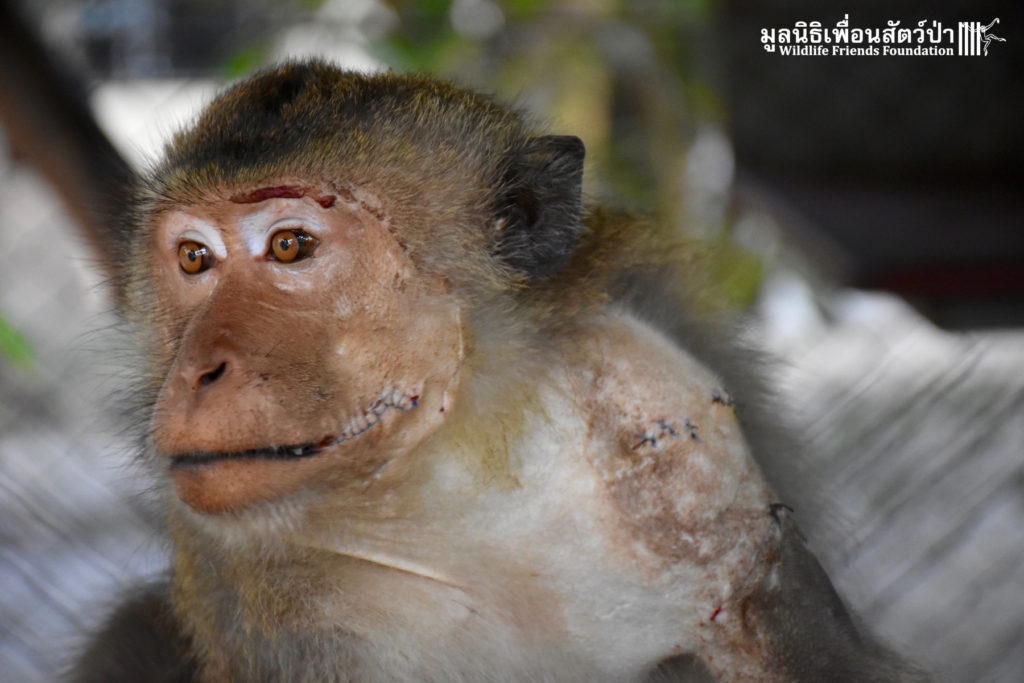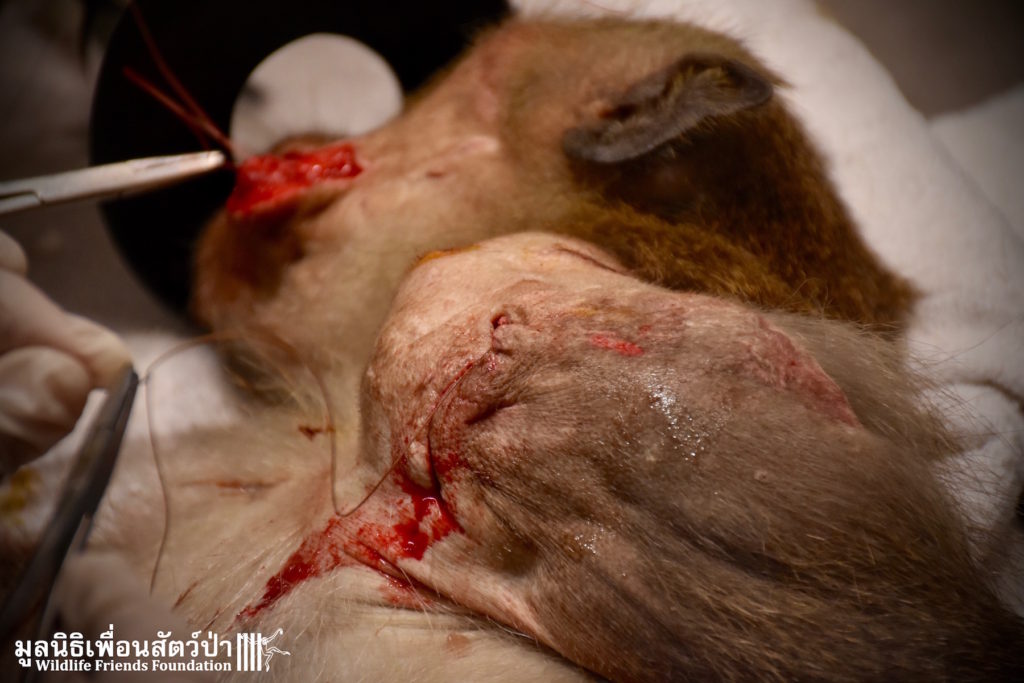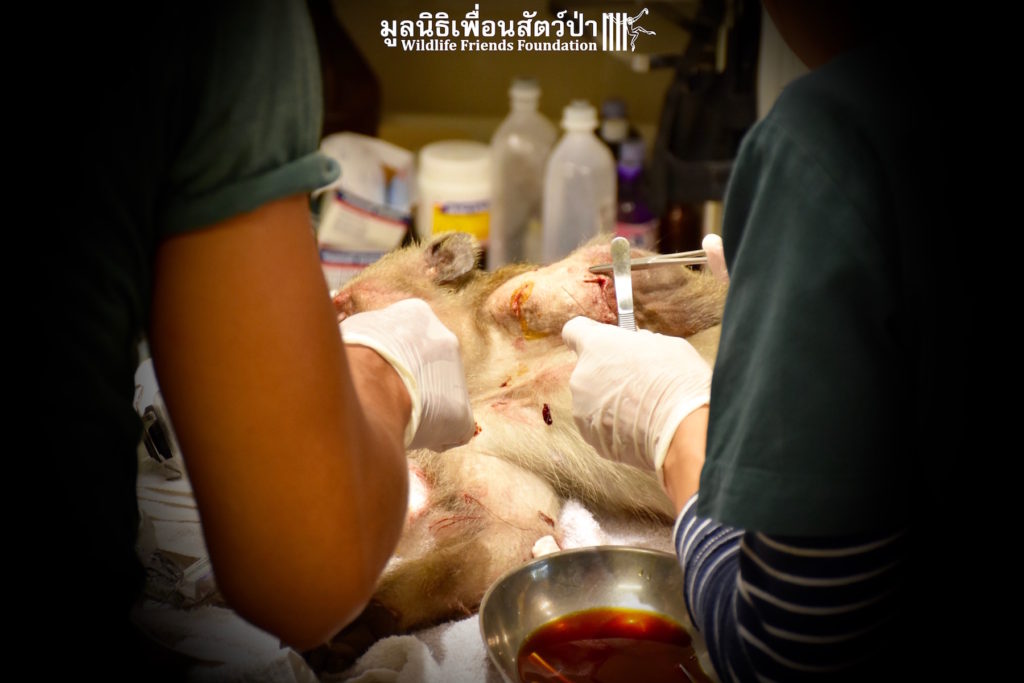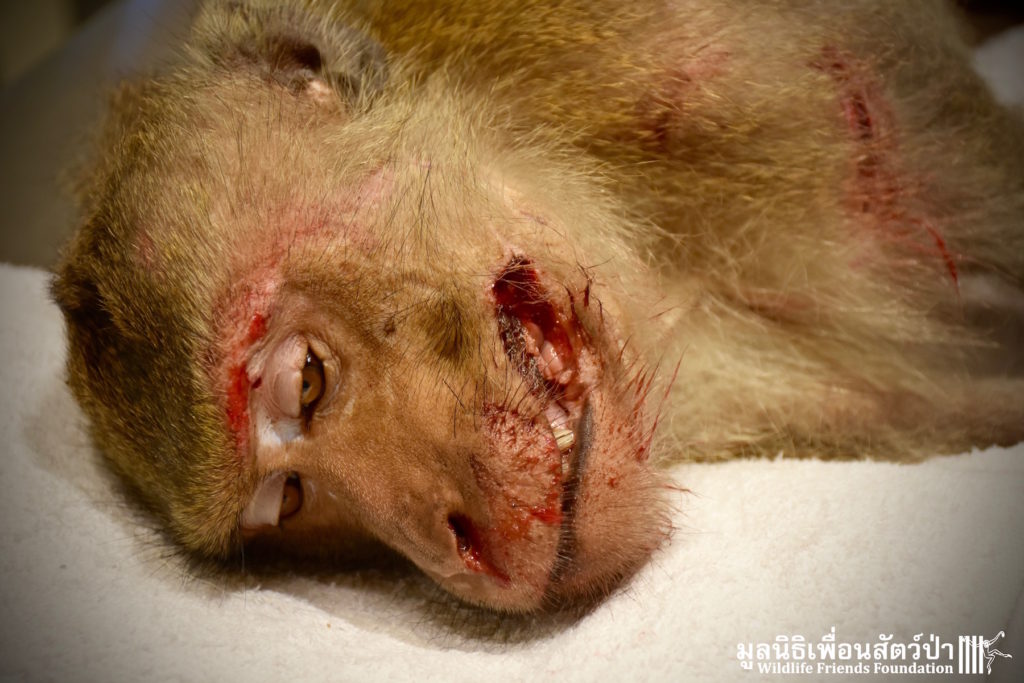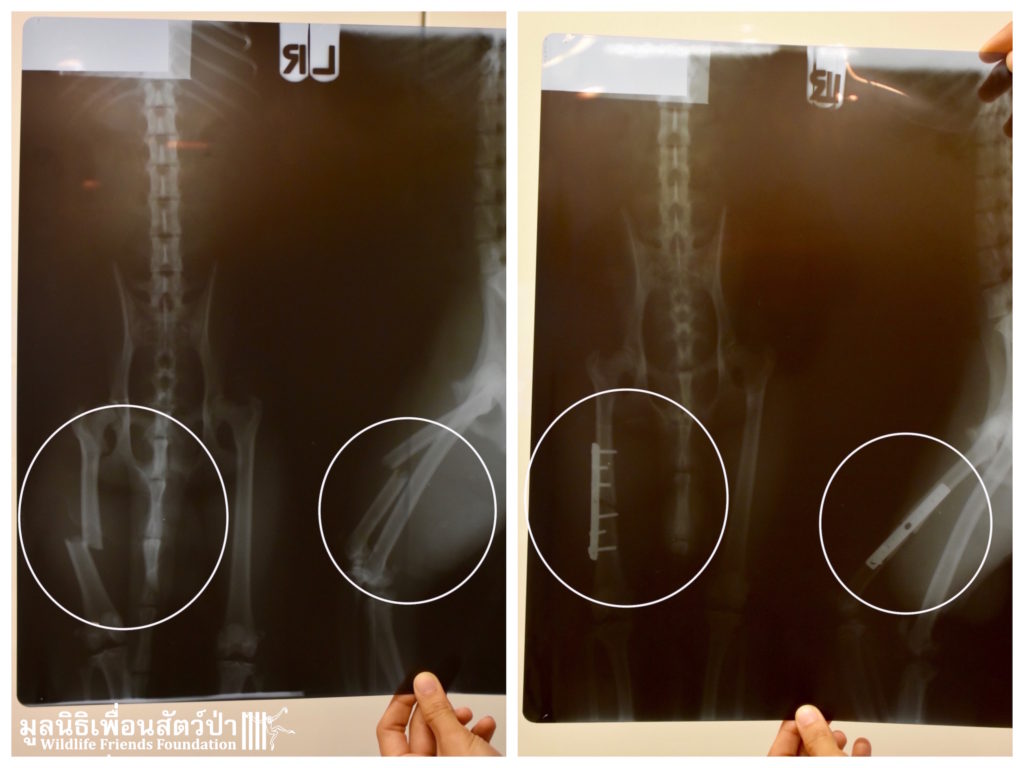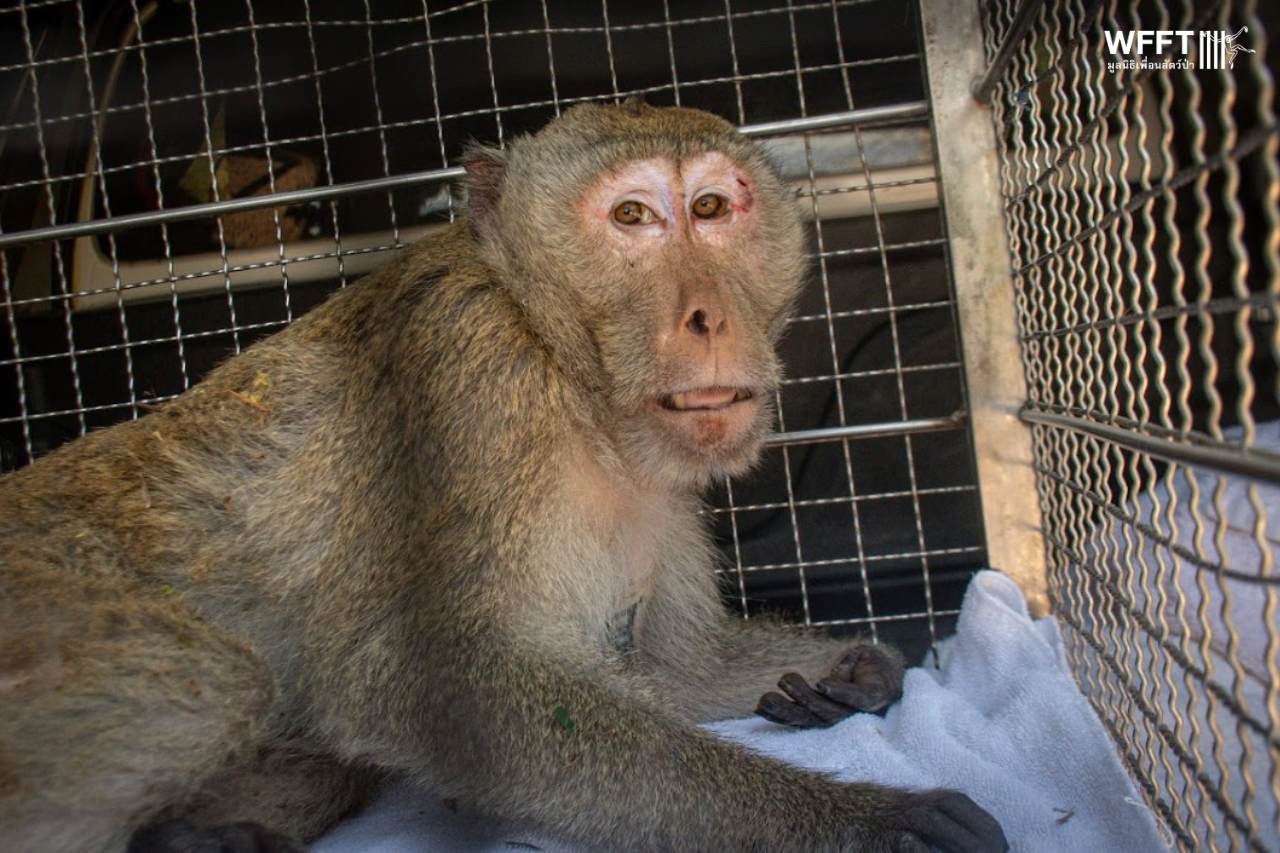It's time to take action—learn how you can help stop this exploitation and protect slow lorises from further harm.
Road Traffic Accident Macaque Arrives for Urgent Treatment
Five days ago a seriously injured adult male long-tailed macaque (Macaca fascicularis) arrived at the WFFT Wildlife Rescue Hospital for urgent treatment. He was brought to WFFT by a local police division after being hit by a speeding vehicle during a road clearance for an official visit in the area, many cars were moved from the road, and in the confusion the macaque was hit. He sustained a multitude of injuries all over his body including a severely fractured leg. Upon arrival he was very weak and his breathing was labored indicating that he had sustained serious internal injuries. The WFFT Vet Team straight away started emergency surgery, after a long 2-hour surgery all his wounds were cleaned and stitched up. The prognosis was not looing good for this big boy, but to our amazement the following morning we found him sat up straight in and very alert in his treatment enclosure. The next day he was taken to a local animal hospital were a bone specialist perform surgery to fix his broken leg, a metal plate was inserted to help rejoin the broken bone.
The long-tailed macaque is listed as Least Concern (LC) by the IUCN Red list of Threatened Species, in view of its wide distribution, presumed large population, tolerance of a broad range of habitats, occurrence in a number of protected areas. Habitat loss and degradation due to human encroachment, pose the biggest threat to all macaque species. They are regularly persecuted as pests. Increasing competition between macaques and humans due the increase in need of land for agriculture and other human activities is the foremost reason that macaques are persecuted as pests. Hostile encounters with macaques are common in urban areas due to the active promotion of their presence for spiritual and entertainment purposes by provisioning food for the macaques. We (humans) both promote population growth through the provision of food and the protection habitat, and on the other hand we hinder it through the continued fragmentation of habitat, capture and exportation for research, and the pet-trade.
After just under a week at the WFFT Wildlife Hospital this big handsome fella has amazed us all with his endurance. He is recovering better than we could have dreamed. We are hopeful that within a few weeks he will be healthy enough to go home, he will then be returned back to wild. We will keep you posted on this amazing recovery.

